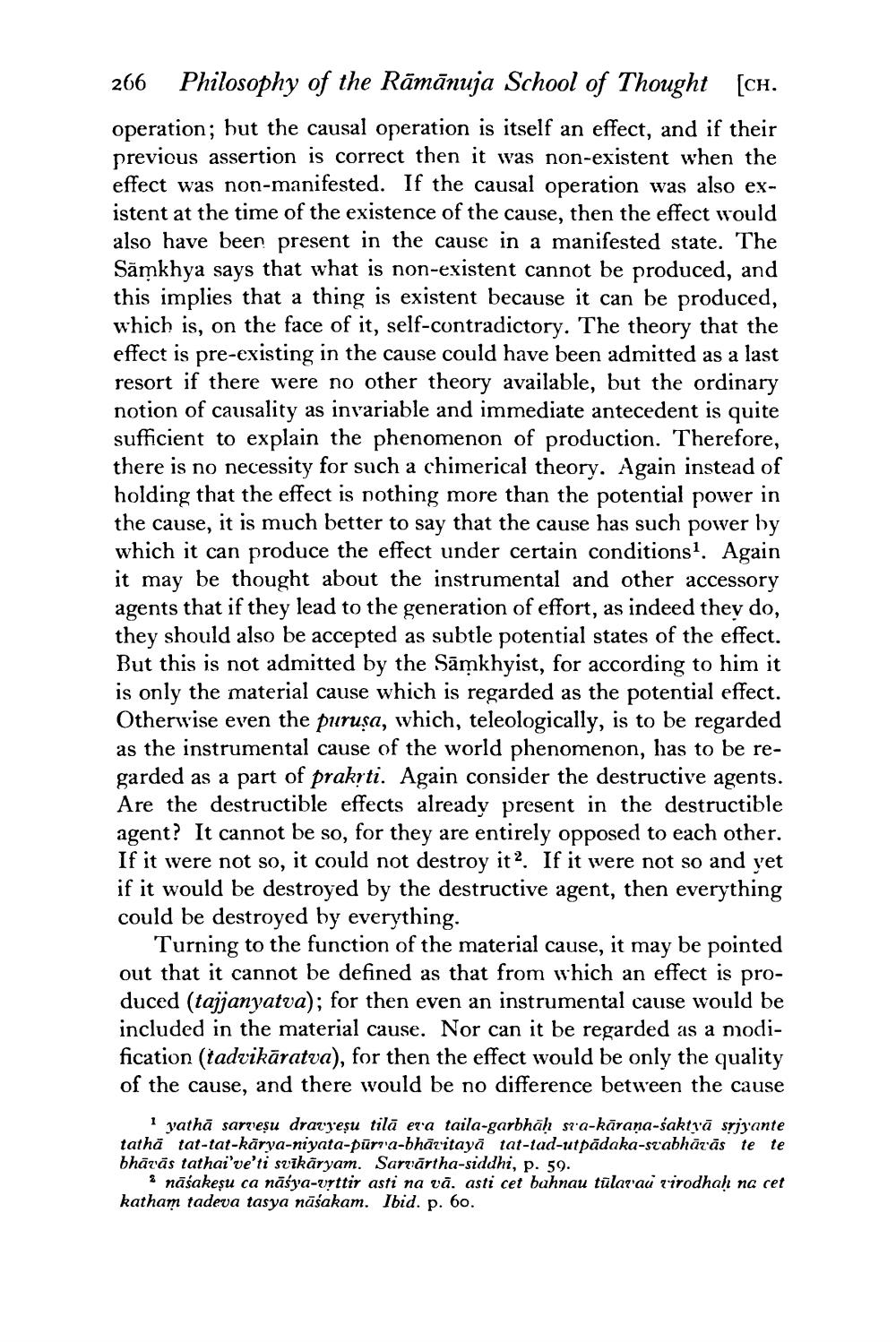________________
266 Philosophy of the Rāmānuja School of Thought [ch. operation; but the causal operation is itself an effect, and if their previous assertion is correct then it was non-existent when the effect was non-manifested. If the causal operation was also existent at the time of the existence of the cause, then the effect would also have been present in the cause in a manifested state. The Sãmkhya says that what is non-existent cannot be produced, and this implies that a thing is existent because it can be produced, which is, on the face of it, self-contradictory. The theory that the effect is pre-existing in the cause could have been admitted as a last resort if there were no other theory available, but the ordinary notion of causality as invariable and immediate antecedent is quite sufficient to explain the phenomenon of production. Therefore, there is no necessity for such a chimerical theory. Again instead of holding that the effect is nothing more than the potential power in the cause, it is much better to say that the cause has such power by which it can produce the effect under certain conditions?. Again it may be thought about the instrumental and other accessory agents that if they lead to the generation of effort, as indeed they do, they should also be accepted as subtle potential states of the effect. But this is not admitted by the Sāmkhyist, for according to him it is only the material cause which is regarded as the potential effect. Otherwise even the purusa, which, teleologically, is to be regarded as the instrumental cause of the world phenomenon, has to be regarded as a part of prakrti. Again consider the destructive agents. Are the destructible effects already present in the destructible agent? It cannot be so, for they are entirely opposed to each other. If it were not so, it could not destroy it?. If it were not so and yet if it would be destroyed by the destructive agent, then everything could be destroyed by everything.
Turning to the function of the material cause, it may be pointed out that it cannot be defined as that from which an effect is produced (tajjanyatva); for then even an instrumental cause would be included in the material cause. Nor can it be regarded as a modification (tadvikāratva), for then the effect would be only the quality of the cause, and there would be no difference between the cause
yathā sarvesu dratyesu tilā eta taila-garbhāh sia-kārana-saktvā srjyante tathā tat-tat-kārya-niyata-puria-bhāritayā tat-tad-utpadaka-stabhātās te te bhāvās tathai've'ti svīkāryam. Sarvārtha-siddhi, p. 59.
ināśakeșu ca nāśya-urttir asti na vā. asti cet bahnau tūlar'au virodhah na cet katham tadeva tasya nāśakam. Ibid. p. 6o.
hácās. gehefiu ca nābrasakan




